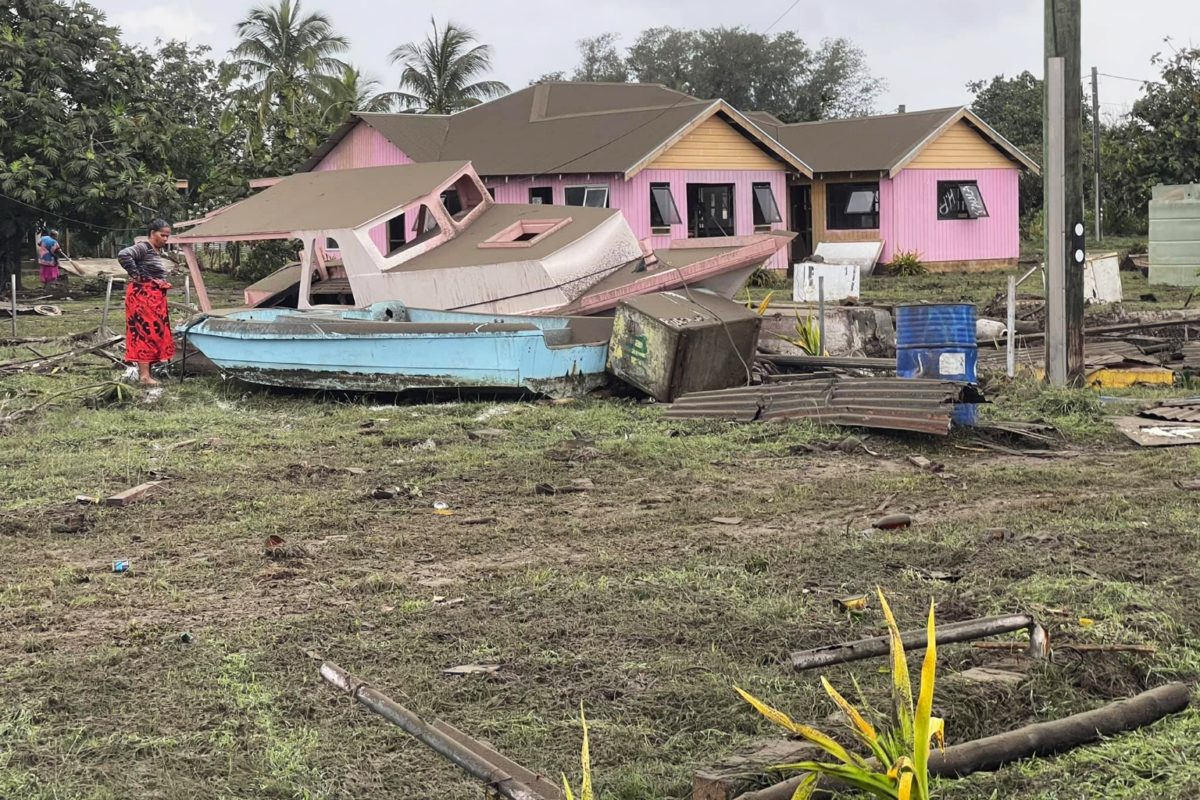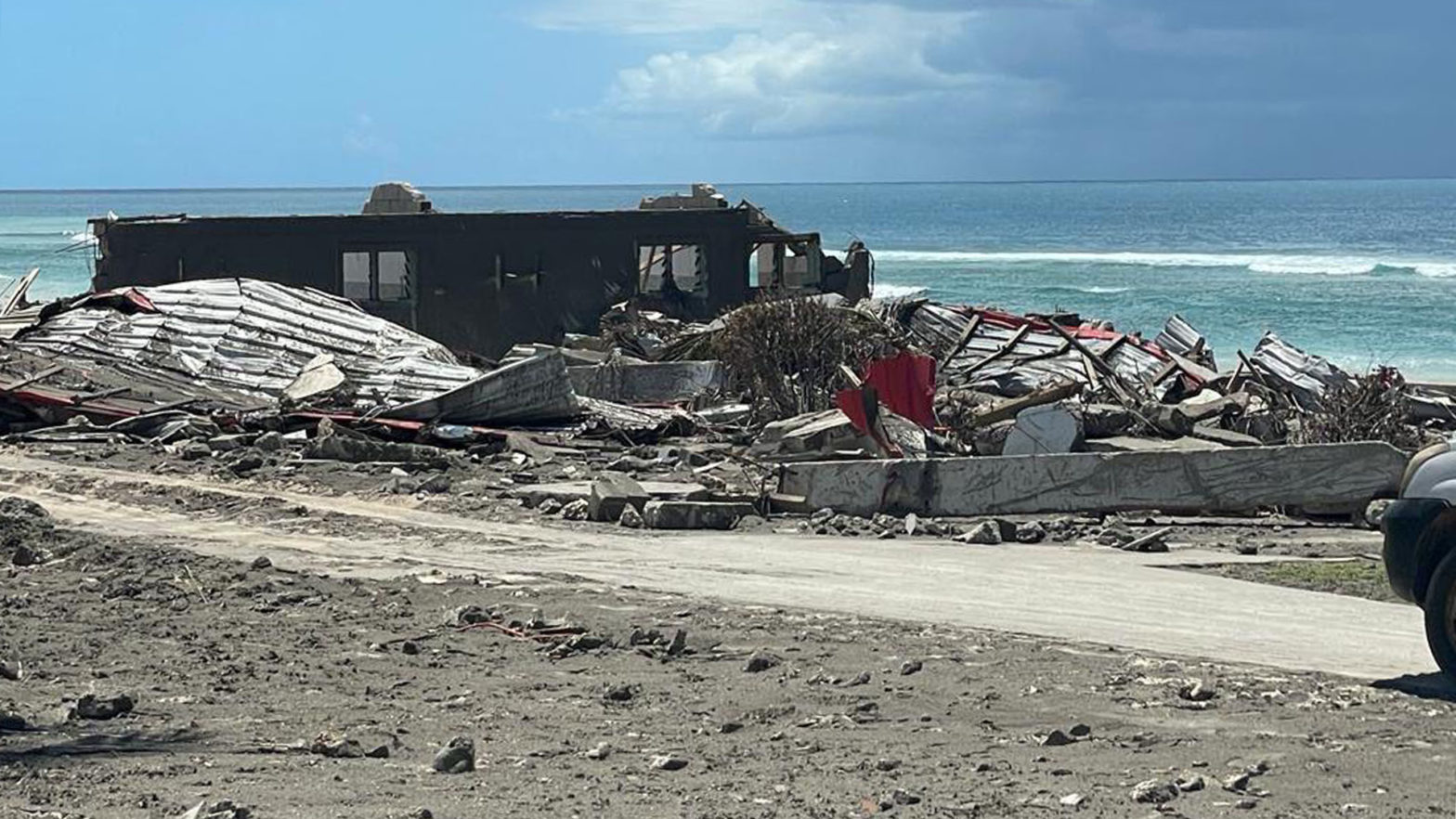Global meeting call attention to the vulnerability of SIDS and their struggle to reach SDGs after the massive volcanic eruption and tsunami in Tonga
The massive volcanic eruption and tsunami in Tonga last month, followed by last week’s earthquake and aftershocks, have highlighted the vulnerability of Small Island Developing States (SIDS), a global meeting focused on the countries and convened by the Food and Agriculture Organisation of the United Nations (FAO) has heard.
In opening remarks at the Global SIDS Solutions Dialogue, FAO’s Chief Economist, Máximo Torero Cullen, underscored “the severe challenge that SIDS face in moving towards the (UN’s) 2030 Agenda for Sustainable Development” and the pressing need to build the resilience of these states to climate change, natural disasters and other external shocks including the COVID-19 pandemic.
“We have therefore made a concerted decision to prioritise activities for these countries and are working closely with SIDS networks and constituencies to implement them,” Torero Cullen said.
“FAO is supporting SIDS to build back better and achieve better production, better nutrition, better environment and a better life,” which are the basis of FAO’s new strategic framework “to ensure more efficient, inclusive, resilient and sustainable agri-food systems, thereby combating hunger, malnutrition, poverty and inequality.”
The Global SIDS Solutions Dialogue was jointly organized by the FAO Liaison Offices in Brussels, Geneva and New York and the FAO Office of SIDS, Least Developed Countries and Landlocked Developing Countries. The event sought to inform governments and development partners of the outcomes of a SIDS Solutions Forum held in Fiji last August. The Dialogue is set to kick-off a series of thematic events on the transformation of food systems in SIDS, throughout the next two years.
To achieve recovery from COVID-19 and reach the SDGs, Torero Cullen stressed the importance of identifying homegrown solutions and harnessing innovation using digitalisation as a force multiplier to accelerate the process.
With around 65 million inhabitants, SIDS account for only one percent of CO2 emissions and yet are most vulnerable to the impacts of climate change, posing an existential threat. Fisheries, tourism and agriculture contribute significantly to their economy, sectors whose vulnerability and fragility is making it more challenging for them to produce sufficient food to meet their populations’ needs.
SIDS in the Caribbean, the Pacific and many small islands in the Atlantic and Indian Oceans and the South China Sea depend on food imports, with 50 percent of SIDS importing more than 80 percent of their food and nearly all SIDS importing 60 percent of their food. As such, SIDS are particularly affected by disruptions in supply chains and international trade, including flight cancellations, slowdowns in the shipping industry and logistics bottlenecks.
The Forum last August launched the SIDS Solutions Platform as a uniquely innovative intra and interregional knowledge exchange platform to incubate, promote, scale-up and replicate locally grown ideas. These will accelerate the achievement of agriculture, food, nutrition, environment and health-related SDGs in SIDS; but also allow SIDS to replicate good practices from other countries.
Among the participants in this week’s dialogue were: Thilmeeza Hussain, Permanent Representative of Maldives to the UN and Special Envoy of the President of the General Assembly; George Rebelo Chikoti, Secretary-General, Organisation for Africa, Caribbean and Pacific States (OACPS); Walton A Webson, Permanent Representative of Antigua and Barbuda to the United Nations and Chair of the Alliance of the Small Island Developing States (AOSIS); Nazhat Shameem Khan, Permanent Representative of Fiji to the United Nations in Geneva, Co-host of the SIDS Solution Forum; along with representatives of the Republic of Barbados, the European Commission, the Europe-Africa-Caribbean Pacific Liaison Committee, the ACP-EU Joint Parliamentary Assembly and the International Telecommunication Union.
This story was originally published at FAO on 02 February 2022, reposted via PACNEWS.




